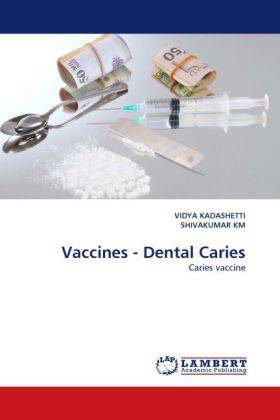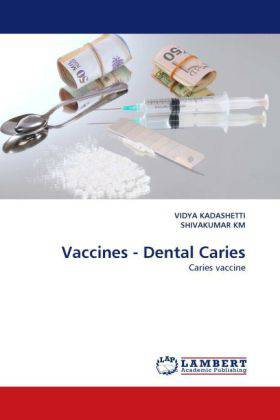
Je cadeautjes zeker op tijd in huis hebben voor de feestdagen? Kom langs in onze winkels en vind het perfecte geschenk!
- Afhalen na 1 uur in een winkel met voorraad
- Gratis thuislevering in België vanaf € 30
- Ruim aanbod met 7 miljoen producten
Je cadeautjes zeker op tijd in huis hebben voor de feestdagen? Kom langs in onze winkels en vind het perfecte geschenk!
- Afhalen na 1 uur in een winkel met voorraad
- Gratis thuislevering in België vanaf € 30
- Ruim aanbod met 7 miljoen producten
Zoeken
€ 66,45
+ 132 punten
Omschrijving
Streptococcus mutans has been identified as the major etiological agent of dental caries. The evidence of a specific bacterial cause of dental caries and of the function of the salivary glands as an effector site of the mucosal immune system has provided a scientific basis for the development of a vaccine against this highly prevalent and costly oral disease. Research efforts towards developing an effective and safe caries vaccine have been facilitated by progress in molecular biology, with the cloning and functional characterization of virulence factors from mutans streptococci, the principal causative agent of dental caries. Immunization when infants are about one year old may establish effective immunity against an ensuing colonization attempts by mutans streptococci. The present review critically evaluates recent progress in this field of dental research and attempts to stress the protective potential as well as limitations of caries immunization.
Specificaties
Betrokkenen
- Auteur(s):
- Uitgeverij:
Inhoud
- Aantal bladzijden:
- 68
- Taal:
- Engels
Eigenschappen
- Productcode (EAN):
- 9783844313468
- Verschijningsdatum:
- 28/02/2011
- Uitvoering:
- Paperback
- Afmetingen:
- 152 mm x 229 mm
- Gewicht:
- 113 g

Alleen bij Standaard Boekhandel
+ 132 punten op je klantenkaart van Standaard Boekhandel
Beoordelingen
We publiceren alleen reviews die voldoen aan de voorwaarden voor reviews. Bekijk onze voorwaarden voor reviews.









